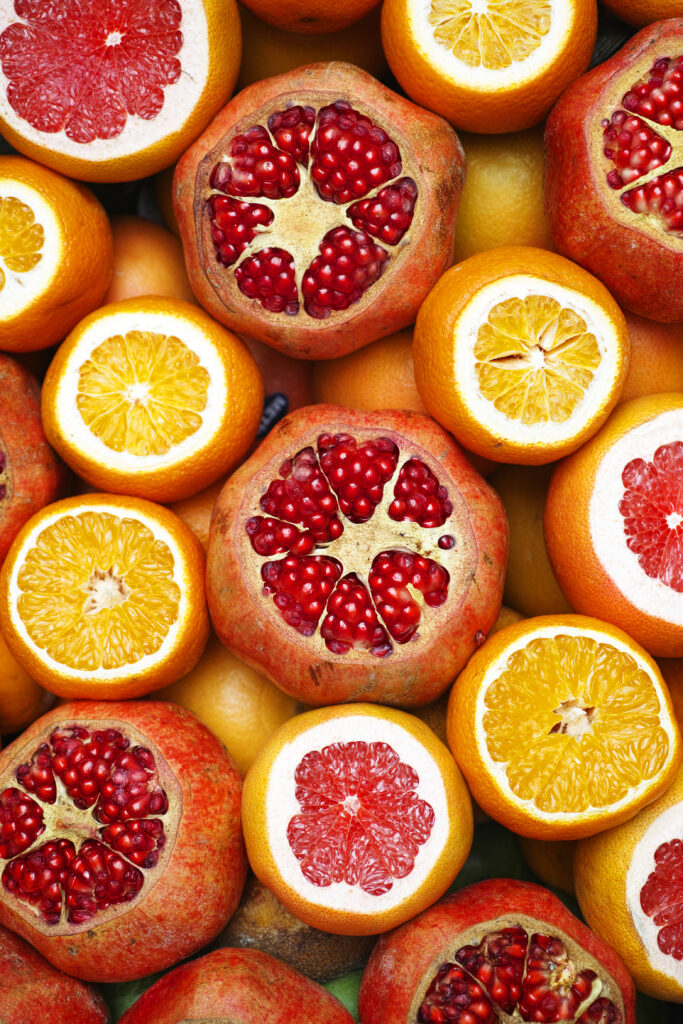The ketogenic diet has gained significant attention in recent years due to its potential benefits for weight loss and blood sugar control. This high fat, low carb approach emphasizes the consumption of animal proteins, dairy, vegetables, other plant-based foods, and fats and oils. While early evidence suggests that the keto diet may also hold promise for treating certain cancers, Alzheimer’s disease, and other health conditions, more research is needed to fully understand these potential benefits. The diet typically restricts carbohydrates to 20-50 grams per day, and it is important for individuals to be mindful of the carb content in the foods they choose to consume. This article will explore the key principles of the ketogenic diet and provide guidance on selecting appropriate foods and avoiding those with high carb content.

Benefits of the Ketogenic Diet
Weight Loss
One of the main benefits of the ketogenic diet is its potential for weight loss. The diet emphasizes eating high-fat and low-carb foods, which allows the body to enter a state of ketosis. In ketosis, the body burns stored fat for fuel instead of relying on carbohydrates. This can lead to a reduction in body weight and body fat percentage.
Blood Sugar Control
Another benefit of the ketogenic diet is its ability to help control blood sugar levels. By limiting the intake of carbohydrates, the diet can prevent spikes in blood sugar and insulin levels. This can be particularly beneficial for individuals with diabetes or insulin resistance. In fact, some research has shown that the ketogenic diet may even be an effective treatment for type 2 diabetes.
Potential Health Benefits
In addition to weight loss and blood sugar control, the ketogenic diet has been studied for its potential health benefits in various conditions. Early evidence suggests that the diet may help with certain types of cancers, including brain cancer and pancreatic cancer. The high fat content and low carb intake of the diet may also have neuroprotective effects, making it a potential treatment for Alzheimer’s disease and other neurological disorders. However, it’s important to note that more research is needed in these areas to fully understand the potential benefits.
Understanding the Ketogenic Diet
What is the Ketogenic Diet?
The ketogenic diet, often referred to as the keto diet, is a low-carb and high-fat diet that has gained popularity for its potential health benefits. The diet restricts the intake of carbohydrates and emphasizes the consumption of healthy fats. By doing so, it allows the body to shift from using glucose as its primary fuel source to using ketones, which are produced from fat metabolism.
How Does it Work?
The main goal of the ketogenic diet is to induce a state of ketosis in the body. Ketosis occurs when the body doesn’t have enough glucose to use for energy and starts breaking down fats for fuel instead. This process leads to the production of ketones, which can be used by the body and the brain as an alternative energy source.
Macronutrient Breakdown
The macronutrient breakdown of the ketogenic diet typically consists of high fat, moderate protein, and low carbohydrate intake. The macronutrient ratios may vary slightly depending on individual needs and goals, but a common breakdown is around 70-80% of calories from fat, 20-25% from protein, and 5-10% from carbohydrates. This low-carb intake is what allows the body to enter a state of ketosis.

Types of Foods Allowed on the Ketogenic Diet
Animal Proteins
The ketogenic diet allows for the consumption of various animal proteins. This includes meats such as beef, pork, chicken, and lamb. These protein sources are not only low in carbohydrates but also rich in essential nutrients like vitamins, minerals, and amino acids.
Dairy
Dairy products can also be included in the ketogenic diet. Options like cheese, butter, cream, and plain Greek yogurt are high in fat and low in carbs. However, it’s important to choose full-fat varieties and avoid added sugars or flavorings.
Vegetables
Vegetables play a crucial role in providing essential nutrients and fiber while following the ketogenic diet. Non-starchy vegetables like leafy greens, broccoli, cauliflower, zucchini, and asparagus are low in carbs and can be enjoyed in moderation.
Other Plant-Based Foods
While the ketogenic diet is primarily based on animal proteins and fats, there are plant-based foods that can be included as well. Nuts and seeds, tofu, tempeh, and certain non-starchy vegetables like peppers and summer squash can add variety and nutrition to the diet.
Fats and Oils
Healthy fats and oils are a staple in the ketogenic diet. Avocado oil, olive oil, coconut oil, and butter are examples of fats and oils that are often consumed on the diet. These fats provide energy and help maintain the body’s state of ketosis.
Healthy Foods to Eat on the Ketogenic Diet
Seafood
Seafood is an excellent choice for the ketogenic diet as it is high in healthy fats and low in carbs. Fatty fish like salmon, mackerel, and sardines are rich in omega-3 fatty acids, which have been shown to have numerous health benefits.
Meat and Poultry
Meat and poultry are important sources of protein and fats on the ketogenic diet. Options such as beef, pork, chicken, and turkey can be enjoyed in various preparations, providing essential nutrients and satiety.
Eggs
Eggs are a versatile and nutritious food that can be enjoyed on the ketogenic diet. They are a good source of protein and healthy fats, making them a popular choice for breakfast or as part of a meal.
Cheese
Cheese is a delicious and satisfying food that can be included in the ketogenic diet. It is high in fat and low in carbs, making it a great addition to meals or as a snack.
Plain Greek Yogurt
Plain Greek yogurt is a high-protein and low-carb option that can be enjoyed on the ketogenic diet. It contains beneficial probiotics and can be topped with nuts, seeds, or berries for added flavor and nutrients.
Cottage Cheese
Cottage cheese is another dairy option that can be included in the ketogenic diet. It is low in carbs and high in protein, providing a filling and nutritious option for meals or snacks.
Cream
Cream is a high-fat dairy product that can be used in various recipes on the ketogenic diet. It adds richness and flavor to dishes and can be used in sauces, soups, or coffee.
Unsweetened Plant-Based Milk
For those following a plant-based or lactose-free ketogenic diet, unsweetened plant-based milk alternatives such as almond milk or coconut milk can be included. It’s important to choose varieties that are low in carbs and free from added sugars.
Green Leafy Vegetables
Green leafy vegetables like spinach, kale, and Swiss chard are low in carbs and high in nutrients. They provide important vitamins, minerals, and fiber, making them a valuable addition to the ketogenic diet.
Peppers
Peppers are a low-carb vegetable option that can add flavor and color to meals. Bell peppers, jalapenos, and chili peppers can all be enjoyed on the ketogenic diet.
Summer Squash
Summer squash, such as zucchini and yellow squash, are low in carbs and can be used in various recipes. They can be roasted, grilled, or spiralized to replace traditional pasta.
Avocados
Avocados are a keto-friendly fruit that is high in healthy fats and low in carbs. They can be enjoyed on their own or used in salads, guacamole, or as a topping on various dishes.
Olives
Olives are another source of healthy fats that can be included in the ketogenic diet. They can be enjoyed as a snack or used in salads, dressings, or as a flavoring in various recipes.
Nuts and Seeds
Nuts and seeds are a nutrient-dense and portable snack option for the ketogenic diet. Options such as almonds, walnuts, chia seeds, and flaxseeds are low in carbs and high in healthy fats.
Berries
Berries like strawberries, raspberries, and blackberries can be enjoyed in moderation on the ketogenic diet. They are low in carbs and high in fiber and antioxidants, making them a nutritious option for a sweet treat.
Shirataki Noodles
Shirataki noodles are a type of low-carb noodle that can be included in the ketogenic diet. They are made from konjac flour and are virtually carb-free, making them a popular choice for those looking to replace traditional noodles.
Low Carb Vegetables
Various low-carb vegetables can be included in the ketogenic diet. Options like cauliflower, broccoli, Brussels sprouts, and cabbage are nutritious choices that can be enjoyed in a variety of dishes.

Choosing the Right Foods on the Ketogenic Diet
Carb Content Awareness
One of the key factors to consider when following the ketogenic diet is being aware of the carb content of foods. It’s important to choose foods that are low in carbs to maintain the body’s state of ketosis. This involves reading nutrition labels, tracking macronutrients, and being mindful of portion sizes.
Unsweetened or Low Carb Options
In addition to carb content awareness, it’s important to choose unsweetened or low carb options when following the ketogenic diet. This means avoiding added sugars, sweeteners, and processed foods that may contain hidden carbs. Opting for whole foods and natural ingredients can help ensure the diet is well-balanced and nutritious.
Vegetables and Fruits to Avoid on the Ketogenic Diet
High Carb Content Examples
While vegetables and fruits are generally considered healthy options, there are certain examples that should be avoided on the ketogenic diet due to their high carb content. Starchy vegetables like potatoes, corn, and peas are higher in carbohydrates and can disrupt ketosis. Fruits like bananas, grapes, and tropical fruits are also higher in sugar and should be consumed in moderation or avoided altogether.
Reasons for Avoiding
The high carb content of these vegetables and fruits can cause blood sugar spikes and prevent the body from maintaining ketosis. By avoiding these higher carb options, individuals following the ketogenic diet can better control their blood sugar levels and maximize the benefits of the diet.
Tips and Strategies for Successful Ketogenic Diet
Meal Preparation
Meal preparation is an essential aspect of the ketogenic diet, as it allows for better control of ingredients and portion sizes. Planning and cooking meals ahead of time can help individuals stay on track with their macronutrient ratios and ensure they have healthy options readily available.
Tracking Macros
Tracking macronutrients, particularly carbohydrates, is important when following the ketogenic diet. Using a food diary or a mobile app can help individuals monitor their carb intake and stay within the recommended range. This can also help identify any potential sources of hidden carbs in foods.
Staying Hydrated
Staying hydrated is important for overall health and well-being, but it is especially crucial on the ketogenic diet. The diet can have a diuretic effect, causing individuals to lose water weight and electrolytes. Drinking plenty of water and replenishing electrolytes through foods or supplements can help maintain proper hydration and prevent side effects.
Supplementing Electrolytes
Supplementing electrolytes is often recommended on the ketogenic diet, as the low-carb intake can affect electrolyte balance in the body. Consuming foods rich in electrolytes, such as avocados, leafy greens, and nuts, or taking supplements like magnesium, potassium, and sodium can help prevent deficiencies and support overall health.
Avoiding Common Pitfalls
There are several common pitfalls to avoid when following the ketogenic diet. These include relying too heavily on processed low-carb products, overeating high-fat foods without paying attention to portion sizes, and not getting enough fiber from vegetables and low-carb sources. It’s important to focus on whole, nutrient-dense foods and maintain a well-balanced diet to ensure success on the ketogenic diet.
Potential Side Effects of the Ketogenic Diet
Keto Flu
One potential side effect of the ketogenic diet is the “keto flu.” This is a collection of symptoms that some individuals experience when their bodies are adapting to a low-carb intake. Symptoms can include fatigue, headache, irritability, and nausea. These symptoms usually subside within a few days to a week as the body adjusts to using ketones as fuel.
Digestive Issues
Some individuals may experience digestive issues when starting the ketogenic diet. This can be due to the sudden increase in fat intake, which can cause changes in bowel movements and digestive processes. Gradually increasing fat intake and staying hydrated can help alleviate these symptoms.
Deficiencies
If not properly planned and balanced, the ketogenic diet can lead to nutrient deficiencies, particularly in vitamins and minerals found in fruits, whole grains, and legumes. It’s important to incorporate a wide variety of nutrient-dense foods and consider supplementation if necessary. Regular blood work and consultation with a healthcare professional can help ensure optimal nutrient intake.
Limited Food Choices
The ketogenic diet can be quite restrictive in terms of food choices, especially when it comes to traditional carbohydrates like bread, pasta, and sweets. This may make it challenging for some individuals to stick to the diet long-term, especially if they have a preference for carbohydrate-rich foods. Adapting to a new way of eating and finding suitable alternatives can take time and effort.
Research on the Ketogenic Diet
Effectiveness for Weight Loss
Research suggests that the ketogenic diet can be an effective tool for weight loss. Many studies have shown that individuals following the diet can experience significant reductions in body weight, body fat percentage, and waist circumference. The high-fat and low-carb nature of the diet promotes satiety, leading to reduced calorie intake and improved weight management.
Role in Treating Certain Cancers
Preliminary evidence suggests that the ketogenic diet may have therapeutic potential in the treatment of certain cancers. Cancer cells have a high dependency on glucose for fuel, and by restricting carbs and promoting ketosis, the diet may impair tumor growth and improve treatment outcomes. However, more research is needed in this area to fully understand the mechanisms and benefits.
Potential Benefits for Alzheimer’s Disease
The ketogenic diet has also been studied for its potential benefits in Alzheimer’s disease and other neurological conditions. Research suggests that ketones produced during ketosis may provide an alternative fuel source for the brain, improving cognitive function and reducing neurodegeneration. While early findings are promising, more research is needed to determine the long-term effects and optimal application of the diet in these conditions.
Other Health Conditions and Ongoing Research
In addition to weight loss, cancer, and Alzheimer’s disease, the ketogenic diet is being explored for its potential benefits in various other health conditions. Research is ongoing to determine its impact on conditions such as epilepsy, polycystic ovary syndrome (PCOS), metabolic syndrome, and cardiovascular disease. While some early evidence is promising, more research is needed to establish the effectiveness and safety of the diet in these populations.
Conclusion
The ketogenic diet is a low-carb and high-fat diet that has gained popularity for its potential benefits in weight loss, blood sugar control, and various health conditions. By emphasizing the consumption of healthy fats and limiting carbohydrates, the diet can shift the body’s metabolism into a state of ketosis. However, it’s important to choose the right foods, be mindful of carbohydrate content, and maintain a balanced diet to ensure success. While the diet shows promise in many areas, more research is needed to fully understand its effects and optimal application in different populations.
